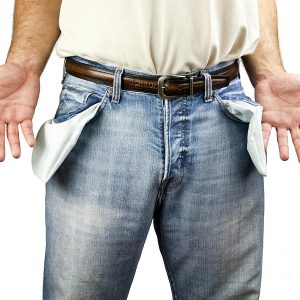Five Reason Poker Players Fail at Turning Pro

Most serious poker players at some point entertain the idea of turning pro and making the game their full-time job. While some can pull this off successfully, there are many more that fail at the endeavor. Below are five of the most common reasons that poker players fail at turning pro.
Lack of Motivation
There are a lot of players that have a difficult time finding the motivation necessary to become a consistent poker pro. Poker is different than other careers because there aren’t a ton of career objectives to achieve. If you’re a tournament player, there are goals to reach, but even those goals tend to be a bit shallow over the long term.
Many find that the lack of attainable goals outside of making money or winning tournaments to be less than fulfilling and many end up losing their motivation or their desire to play the game. Other factors such as the daily grind, the changing face of the game, and even those involved in the game can make a person lose their motivation and desire, and if you aren’t motivated, it is extremely difficult to find success.
Life Gets in the Way
Many players are forced to step away from poker due to life issues that cause too many conflicts to play. One of the most common is parenthood. You can look at players such as Jason Mercier and Matt Stout to see how becoming a parent can impact one’s time at the tables. Priorities change and poker becomes a lot less important.
Of course, parenthood is not the only life issue that gets in the way. Relationships can often get in the way, causing a poker player to walk away for a time. Health issues are a common problem, especially with older poker players. This can be physical or mental health issues that cause a player to walk away for a time, or in some cases permanently.
Bankroll Management Issues
Another common problem that forces players to give up being a pro is poor bankroll management. In some cases, these are players that are trying to play too big for their bankroll. In other cases, they have leaks in their bankroll that’s keeping them broke.
Most often these leaks are related to other forms of gambling. Sometimes it is sports betting, and other times it is pit betting. Then you have some players that try to live so far outside their means that it results in them having to use their bankroll to support their lifestyle.
Unwilling to Adapt
I know this from personal experience. I was thinking about turning pro back in 2008, but I was not willing to make the changes necessary to play poker full-time. In my case, I did not want to move to the areas I would need to play the games I preferred. I also did not want to become a strictly NL player to play at casinos near me.
For most players, an unwillingness to adapt pertains to the game itself. There are too many old-school poker players that became unprofitable after the poker boom because they were not willing to adjust their style of play. Many newer players are unwilling to put in the work to adapt their game to stay competitive with the ever-changing competition. Adapt or die is the name of the game in professional poker.
You Lack the Ability to Play at a High Level
Ultimately, some poker players simply do not have the ability to compete at a pro level. Maybe they can beat their local games or become an overall winner at their local $1-$2 casino game. However, they don’t understand the nuances of the game enough to play the game professionally.
Some players have a hard time learning or applying the necessary concepts that allow you to win at higher levels. Others don’t have the stamina or the concentration and focus required to play poker 40 hours or more a week. Regardless of what people try and tell you, some people are simply unable to ever master poker to a level necessary to be a successful pro.
You Don’t Have to Become a Pro to Enjoy the Game
Some players get frustrated when they hit a wall in their poker career and are unable to make a run at turning pro. The thing is, a tiny percentage of players ever turn pro and even fewer make it a lifetime career. So if you happen to join those ranks, that’s OK!
Remember, you don’t have to be a pro to enjoy poker, and you’ll still have more skill than many players you encounter. You can still enjoy it recreationally or even semi-professionally. In fact, the reality of the modern poker world is that many of your “pro poker players” are not truly pro poker players. Many have other endeavors that make their regular salary, and poker income is extra.
So if you try and turn pro and fail, life goes on! You can still enjoy poker and even profit from it.
